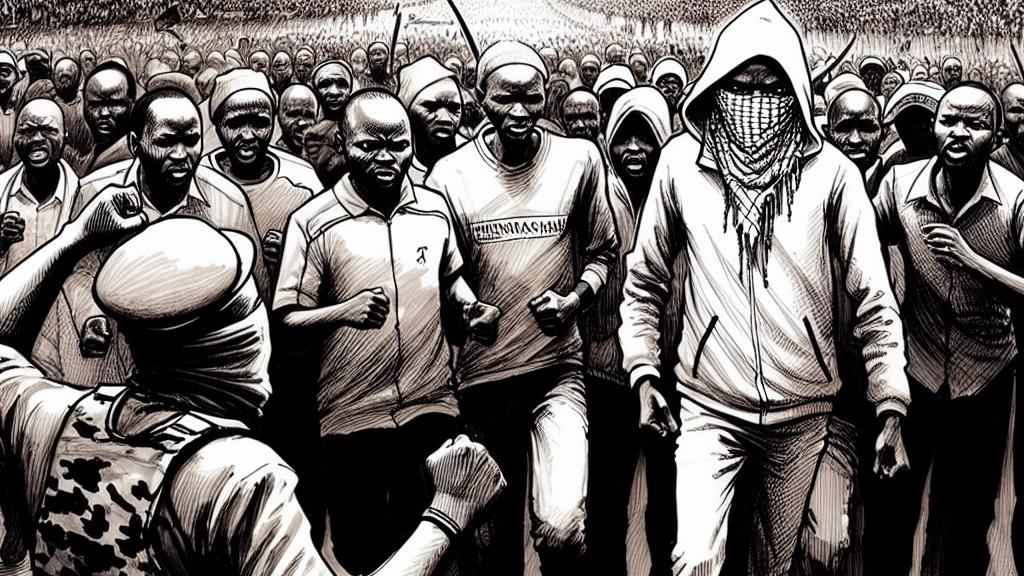Kenyan Activist Boniface Mwangi Detained Amid Protest Call
Overview
- Prominent Kenyan activist Boniface Mwangi was detained by police after masked individuals forcibly took him from his residence.
- His call for a protest during the Standard Chartered marathon in Nairobi aimed to challenge President William Ruto's leadership amid rising discontent.
- This incident has triggered widespread public outrage, with many supporters demanding accountability and his immediate release.

Detention and Background
In a shocking turn of events that has captivated national attention, renowned Kenyan activist Boniface Mwangi was forcefully taken from his home by a group of masked individuals. This alarming incident occurred early in the morning in Machakos County, located about 40 kilometers east of the vibrant capital, Nairobi. Mwangi, a vocal critic of governmental actions, had recently rallied citizens for a significant peaceful protest to demand the resignation of President William Ruto. This was not merely a protest; it was a powerful declaration of discontent, carefully timed to coincide with the prestigious Standard Chartered marathon—a major event expected to draw extensive public participation. Throughout his activism, Mwangi has faced multiple arrests, each one a testament to his unwavering dedication to fighting for the rights and voices of marginalized communities in Kenya.
Public Response and Context
The news of Mwangi's detention has sparked an outpouring of outrage across the nation. His supporters and numerous civil rights advocates perceive this as a blatant assault on free expression, raising alarms about the dangers faced by those who dare to challenge the status quo. Indeed, this situation highlights a worrying trend of governmental repression targeting dissenting voices. Mwangi's spirited call encouraged citizens to attire themselves in the vibrant colors of the Kenyan flag, wear bandanas emblazoned with 'RutoMustGo,' and create a chorus of protest chants that would echo through social media platforms. This grassroots mobilization not only captivated the public's attention but also helped to foster a sense of unity among Kenyans, who are increasingly frustrated by escalating living costs and alarming reports of police brutality. The marathon, traditionally seen as a celebration of athleticism, transformed into a resounding platform for political expression, turning the streets of Nairobi into a vibrant stage for social change.
Historical Activism and Significance
Boniface Mwangi's rich history as a social activist deeply connects him to his past experiences as a photojournalist during Kenya's tumultuous post-election violence in 2007. His photographic work did not merely capture images of despair; it told compelling stories of survival and resilience that echoed through the hearts of Kenyans. Over the years, this pivotal experience inspired Mwangi to shift from documentation to becoming an active agent of change. He founded initiatives like 'Picha Mtaani,' a powerful street exhibition that serves not only as a reminder of past atrocities but also as a catalyst for community healing and dialogue. The essence of Mwangi's current efforts transcends mere political protest; they represent a broader struggle for justice and accountability in Kenya’s political landscape. This moment is significant, by showcasing a courageous spirit of resistance that resonates far beyond Kenyan borders, inspiring activists worldwide to confront oppression and strive for a more just society.

Loading...